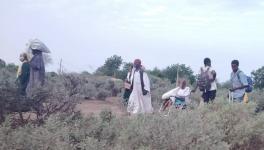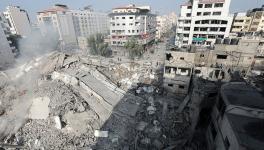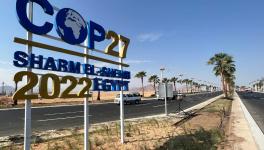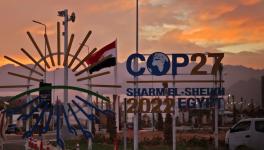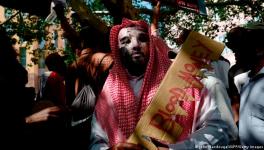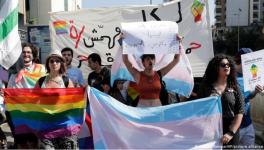Egypt Needs a Democratic Revolution: Ahdaf Soueif
A lot has changed in Egypt since the new regime has come to power. Attempts have been on to suppress any voice of dissent. Police and forces have become omnipresent, with a clear mandate to crush the popular movements. Quite a contrary to the Mubarak regime, where opposition had at least some voice, today, every effort has been made to nip any opposition at its origin.
In this context, Newsclick interviewed Ahdaf Soueif, a well known Egyptian writer. She talked about today’s Egypt and the crisis that is gripping the nation. According to Soueif, earlier, people of Egypt could rely on institutions like media and judiciary to act as a check and balance to the government. But, today these two institutions have been made into puppets in the hands of the regime. She pointed out, around 40,000 people are in the prison and around 100 people are getting disappeared every month. On top of this, there are extra judicial murders. The situation became very violent.

Rough Transcript:
Prabir Purkayastha (PP): Hello and welcome to Newsclick. Today, we have with us Ahdaf Soueif a very well know writer from Egypt and would be discussing what's happening in Egypt today. Ahdaf, you have been here a couple of years back but at that time we were still looking at Arab spring and various things that were happening. Now after that, today we have a very different scenario, we have a military rule back in Egypt again, we have difficulties shall we say democratic aspirations of the people, student unions have been dissolved, the lawyers who are fighting the cases have disappeared. Some of them are also been put in prison. How do you rate it before the Arab Spring or what happened in Tahrir square and today? Would you say it has gone back to the same position or is there some change is a consequence what has happened during the Tahrir square?
Ahdaf Soueif (AS): Okay. Thank you and I am very glad to be back here. I think we can look at as if in same place but the things have changed. You could see that we are moving not in a circle but in a spiral. So in Egypt, the revolutionary change in 2011 it actually did something. It actually changed the psychology of the people. I think there is no way that you can go back to the pre-January 2011 state of things. In terms of the ruling regime, of course would we have the Mubarak regime back with a vengeance with sort of bells and tiaras and so on. An overt dictatorship and a police state. Of course, it was a police state under Mubarak but now everything is much more in the open. So we were just talking about the numbers of police that they are on the street. There are large numbers and there are also …like they won't be seen so you know brand new shiny cars with police written on them and inside them they stack them in and sometimes they are wearing binoculars and masks and so they are making a very conscious active presence on the streets. Of course, we have disappearances which were very rare in Mubarak's time.But I think, may be the most important difference in terms of the regime is that throughout Mubarak's time let's say from 2012 onwards there was really strong opposition and opposition movements started appearing on the streets and so on. You could rely on the two institutions that are there to act as check and balance on the government to do a job. So the judiciary, you more or less rely if you went to court, you will get a fair trial and in the media, there would be room in the media for a different voice. Not in the main channels in the media but somewhere. Now, both these institutions have gone over to the regime and are really behaving as arms of the regime. Therefore, there is no notion for anymore of the justice in the courts, of impartial judiciary and the media is completely singing the tune of the regime apart from odd websites like Mondoweiss.
PP: So the repression has been in some sense more often what you are saying but the people's confidence and the ability belief that they may be able to change like they did before that is the new thing that you see in Egypt today as a consequence of 2011.
AS: I think that the people know that they can get rid of the head of the regime. They think that the regime itself is a much more difficult proposition. I think people have on the whole lost their fear because they were in confrontations and so many people have died and so many people have been badly injured and we have so many people imprisoned. The sense of normality that you have under normal circumstances that you make afraid of state violence is no longer there. We don't have that normality. All this doesn't mean that the people can get up and change the regime, the regime itself has proved very resilient and very flexible in how it presented of and also because people it's like sort of alternative. In January 2011, a key factor was that in Tunisia, people have got out on the street and Ben Ali had run away. So if they can do it, we can do it. So there needs to be an element of hope and there needs to be one clear target, one clear achievable target. Now, the target can no longer be removed the head of state.
PP: You know the one thing of course is the nascent electoral process, I will not call it democracy but the nascent electoral process also led to the advantage to the Muslim Brotherhood who were the most organized of the political process. Do you think there is a belief now after what we saw the Muslim Brotherhood it's unpopularity in terms of what they did trying to ram a constitution down the throats of other people. Do you think there is a belief now that we need to look at the political processes and rebuild again in a way that allows an expression different kinds of politics on the ground which is the only way which would allow what you said not just the titular head but the regime itself.
AS: I think this is very much one of the central topics which was very much under discussion in Egypt in 2011what is the meaning of the democracy. If democracy really means that the people who are most effected by a decision get to be part of making that decision and this is at every level. Then where is ti that we see democracy happening. There is a sense that democracy has become a process really empty of real meaning. Now, just to on the Muslim brotherhood issue, they did in fact win parliament and that was free and fair elections everybody knew that they are the one who are most organized and then they had people on the ground and they want parliament. So if they had fulfilled the promise to carry on the road of revolution, towards the aim of the revolution, social justice and human rights and so on. If they had agreed to work with people outside for brotherhood then there would not be in this position now. What happened, a banner was raised when people demanded that Mohammad Morsi step down and let's just remember that the demand of the people on June 30, 2013 was that the early presidential elections should be held. Not that he should be deposed by a military movement but the early presidential elections should be held and of course, the brotherhood supporters would say the ballet box brought us in and the response to that which was imbalance everywhere was that our boxes cancel out your boxes. Our boxes means the boxes, the coffins in which the young people killed by the brotherhood were buried. So the fact that you killed our people on the streets cancels your ballot boxes which is an argument. But I think you are completely right that the issue is how do you get a situation where people do determine what's best for them when I see this question rising everywhere. Here, in Lahore I was there three weeks ago, in London, that is the big question.
PP: You are absolutely right what the electoral democracy as it were to the real democracy would be and you can evacuate the content of democracy with a formal part of election. But coming back to what you have said about you are absolutely right that the demand was he step down which is legitimate demand of any civil movement that you can raise such a political demand. It is only when it gets into endorsing the military takeover and the military deposing of Morsi has actually opened the back door to what has happened now and I would also say it is immaturity perhaps of the political processes which was really post 2011 very nascent that let both Muslim Brotherhood beig doing what it did and opening the gate to military dictatorship in Egypt again.
AS: Yes, you are completely right. There is a political immaturity, we have to note we are talking about a situation in which sixty years the state has made it's business to absent people from politics and so it is not surprising that there is political immaturity.
PP: It takes time to build them up. Last question. Tunisia, that you mentioned about Tunisia. Tunisia seems to have with a more matured response to the Tunisian revolution than what we saw in Egypt. Both from the other side which is again the Muslim Brotherhood. The Innahada is really a variant of the same and also it seems that there is a deeper political processes in Tunisia. Part of it being the labour movement and so on which may be difference between Tunisia and the Egypt. Do you think that is true?
AS: Yeah. I think I was sitting, Tunisa is much smaller than Egypt and the level of education there is much higher and it is not in the cross-heads of so many world interests as Egypt is. I think that they were very lucky to have Mr. Anushi who was able to negotiate through a process which seems to be working with best of the Arab revolutions so far.
PP: How would you see Egypt playing out in future. I know crystal ball gazing is a difficult exercise but how do you see it play out in future? Do you think we are going to see slow maturing of political processes again and this time there is a movement of more mature response to the event. AS: Well, I think revolutions take a long time. Yes, of course, there was tremendous hope, tremendous euphoria but we need to remember that 25th of January 2011 was not a planned revolution. It was a spontaneous eruption of people on the street. It was miraculous. It put out so much energy and goodwill and brilliant ideas and everybody like making best of themselves and working in and I think we need to not ever deny that but I think also it is one event in what is going to be a series of event. Basically, it itself was the outcome of ten years of protests and opposition to Mubarak and talking about alternative ways of running the country and so on. So it was a great sort of climatic event and now we are in a different movement. But the revolution continues because there is no choice but for it to continue. So only under the present regime there is going to be a maturing of political engagement or being able to articulate a vision for how you want that's not going to happen under the present regime because the human rights behaviour is so terrible. We have over 40000 people in prison.
PP: It's completely authoritarian regime.
AS: It's completely authoritarian regime and it is brutal. It's really does not permit any action what's so ever. We have more than 40,000 people in prison. We have every month about 100 people disappear, extra judicial murder. It's a very violent regime. So nothing can flourish or happen within this. So something needs to happen to change this period in which the country is living into the one which is more conducive to suit.
PP: This is all the time we have in today. Keep watching Newsclick.
.
Get the latest reports & analysis with people's perspective on Protests, movements & deep analytical videos, discussions of the current affairs in your Telegram app. Subscribe to NewsClick's Telegram channel & get Real-Time updates on stories, as they get published on our website.









